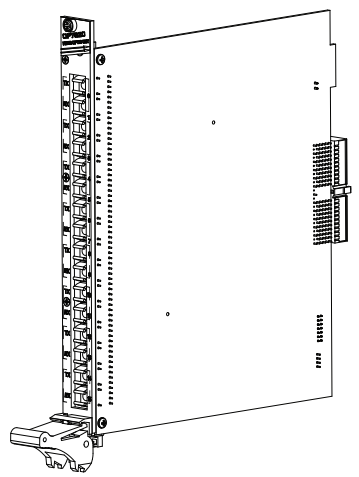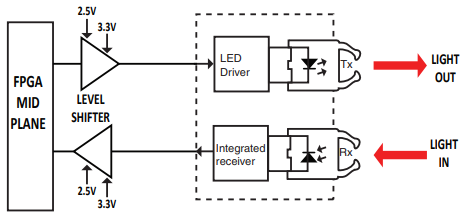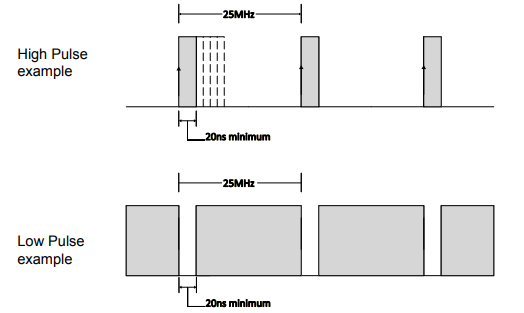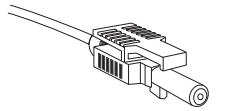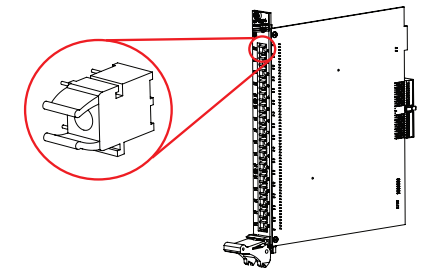The OP7820 is a digital I/O conditioning board designed to fit in the back slots of the OP7000 chassis.
The board holds 16 optical transceivers and converts 8 logic signals into 8 fiber optic signals (transmit channels), and 8 fiber optic signals into 8 digital logic signals (receive channels). Hence it ensures optical digital input and output isolation between the OPAL-RT simulator and the unit under test.
The transceivers are compatible with plastic optical fiber cables (650nm wavelength). Their frequency range is DC to 25 MHz, corresponding to a 50 Mbps baud rate, for distances up to 50 meters. The absolute minimum for transmission (Tx) high and low pulse width is 20ns.
This frequency range means the board can be used as a standard digital I/O card with isolation (DC mode), or for low-speed communication protocols. The board is compatible with OPAL-RT's ORION protocol.
Channel Description
Installation
The OP7820 fiber optic module must be inserted at the back of the OP7000 simulator, making sure that the board is properly aligned using the guide tracks before pressing it into place.
The corresponding front slot may be empty or may hold an OP7353 monitoring board.
Front Plate
The front plate features 8 groups of transmit (Tx, output) and receive (Rx, input) transceivers.
The plastic optical fiber cable must hold a VersaLink termination. One cable is required for each transceiver connection.
Specifications
| Product Name | OP7820 |
|---|---|
| Part Number | 126-0422 |
| Product type | OP7000 fiber optic board |
| Receiver Type | Avago AFBR-2624Z |
| Transmitter Type | Avago AFBR-1624Z |
| Connector Type | VersaLink termination |
| Maximum Tx/Rx Frequency | DC to 25 MHZ (for 50 Mbps at 50 meters) |
| Minimum Tx Pulse Width | High and low = 20ns. |
| Dimensions | 18.8 x 16.4 cm (7.4 in x 6.46 in) |
| Operating Temperature | 10 to 40 ºC (50 to 104ºF) |
| Storage Temperature | -55 to 85ºC (-67 to 185ºF) |
| Relative Humidity | 10 to 90%, non-condensing |
| Maximum Altitude | 2,000 m (6562 ft.) |
